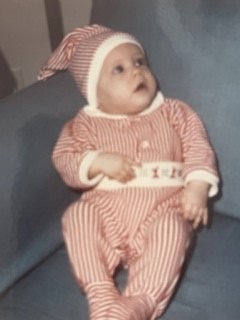It was one of THOSE mornings. My husband and I switched cars at the last minute so our teen could drive his car later and not the loaner car I was using while my car was in the shop.
Mornings can be sticky, but today we were ready to go on time. I hopped into the jeep to start the car -“KEY FOB NOT DETECTED.” Huh. The key fob was in the back seat but that’s never been an issue before. Ok, key fob now up front, let’s try it again. “KEY FOB NOT DETECTED.” WTF???? Again. No luck. Again. FUUUUUUCCCKK!!! Quick dash around the house to discover that hubby’s key fob is not in the house. Try to call him but he’s on his way to work and on a daily conference call. Keep calling – maybe he’ll get the hint that he needs to pick up?
I’m on a call.
I know! Car won’t start. Where is your key?
With me. Put the key fob near the start button.
Did that, not working.
Keep trying.
I have. Need to get G to school. Need a working car today. You need to come home with key. It is not starting.
By the grace of God on the 25th try, it starts. I tell him to meet me at school because the warning light now reads “key fob has left the vehicle” even though the engine is now running, and my key fob is in the car. I know that once the car shuts off, it’ll be a challenge to start it back up with my key fob.
I was not my best self when I shouted curse words in frustration. Our son was watching me and told me to calm down. “It’ll all work out Mama.” On our drive to school, he told me that it always works out and I needed to chill. I called him a prophet and he called me a “mean old witch in a Disney movie.” It made me laugh. And it got me thinking.
I am thrilled that my son believes that it’ll all work out. Not thrilled about the “mean old witch part,” but then again, he is a pre-teen and gets annoyed by what he considers my “arbitrary rules,” like putting his phone away by 8:45 PM.
It will all work out.
This is something I’ve been working hard to embrace for the past six months. I didn’t realize how much I thought it didn’t apply to me. I believed that things didn’t work out for me – that I had to try harder than everyone else and I couldn’t trust in the process. Good things happened to other people, but not to me. This realization has been a part of my process of “coming out of the fog” as adoptees call it. “Coming out of the fog” means when an adoptee becomes aware of the impact their adoption has on their life. And no, it’s not because I had a bad adoption experience. Being separated from my biological mother at birth caused trauma. I had a subconscious belief that there was something wrong with me, which is why she didn’t want me. I constantly performed, trying to fit in, to please, to make sure that I wasn’t rejected again. I couldn’t just be me because me wasn’t good enough to keep. I internalized these feelings and had no idea how much it colored my thinking until I started to untangle all of this over the past few years.
I have been working on reminding myself that it always works out, but in times of stress, old habits die hard. I lost my cool this morning. My son did make it to school with two minutes to spare. My dog made it to the dog park and still had time to romp with friends. It will all work out. Maybe not the way you planned, but it does. Or at least that is what I’m still learning, but my son already understands.



